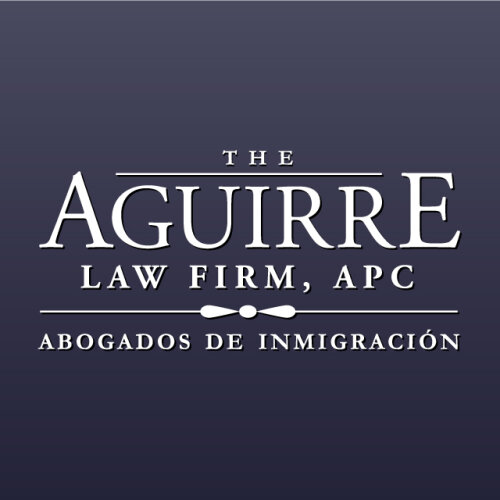Best Antitrust Litigation Lawyers in Los Angeles
Share your needs with us, get contacted by law firms.
Free. Takes 2 min.
List of the best lawyers in Los Angeles, United States
About Antitrust Litigation Law in Los Angeles, United States
Antitrust litigation refers to legal action brought under laws designed to promote fair competition and prevent monopolistic practices in the marketplace. In Los Angeles, as in the rest of the United States, antitrust laws seek to protect consumers and businesses from unfair competition, price fixing, market allocation, monopolization, and other practices that harm market integrity. Both federal and California state law play important roles in regulating antitrust conduct, with high-profile cases often emerging from Los Angeles's large and diverse economy. Antitrust litigation typically involves private parties, government enforcement agencies, or class actions seeking damages or injunctive relief against companies alleged to have violated antitrust laws.
Why You May Need a Lawyer
You may need an antitrust litigation lawyer in a variety of circumstances, including:
- If your business is facing allegations of anti-competitive conduct, such as collusion with competitors, price fixing, or market division.
- If you believe you have suffered financial harm due to another company's monopolistic behavior or restrictive business practices in Los Angeles.
- If you are responding to an investigation by the Department of Justice, Federal Trade Commission, or California state authorities.
- If you are involved in a merger, acquisition, or joint venture that may raise antitrust concerns.
- If you are considering joining or starting a class action lawsuit against a company for violating antitrust laws.
- If you need advice on compliance with complex state and federal competition rules.
- If your business wants to challenge unfair competitive practices by a dominant competitor.
Antitrust law is highly specialized, and improperly handling these matters can result in significant financial consequences or business restrictions. Experienced legal assistance is essential in evaluating claims, mounting a defense, navigating investigations, and securing a favorable resolution.
Local Laws Overview
Los Angeles businesses and residents are governed by both federal and California state antitrust laws. The primary federal laws include the Sherman Antitrust Act, the Clayton Act, and the Federal Trade Commission Act. These laws prohibit monopolization, cartels, price fixing, bid rigging, and other anti-competitive practices nationwide.
California has its own antitrust statutes, such as the Cartwright Act, which is broadly interpreted to protect competitive business practices. California's Unfair Competition Law provides an additional layer against deceptive, unlawful, or unfair business acts. Local government agencies in Los Angeles also sometimes enact ordinances that supplement these protections.
Litigation in Los Angeles courts often involves both federal and state claims, especially given California's strong emphasis on consumer and business protections. Los Angeles's status as a major national and international business hub means that antitrust cases here often have broad ramifications and may attract the attention of regulators from multiple jurisdictions.
Frequently Asked Questions
What is considered an antitrust violation?
An antitrust violation typically includes activities like price fixing, bid rigging, market allocation, monopolization, and exclusive dealing arrangements that unfairly restrict competition. Both intentional and inadvertent conduct may be subject to investigation or litigation if it impacts market competition.
How do I know if I have an antitrust claim?
If you believe your business or you as a consumer have suffered economic harm because of anti-competitive conduct, such as being forced to pay inflated prices or being excluded from a market by a dominant player, you may have a potential antitrust claim. A lawyer can help you assess your specific situation.
Who enforces antitrust laws in Los Angeles?
Antitrust laws are enforced at both the federal and state level. Key federal agencies include the Department of Justice (DOJ) Antitrust Division and the Federal Trade Commission (FTC). On the state level, the California Attorney General's Office handles enforcement. Private parties can also file civil lawsuits for antitrust violations.
What are the penalties for violating antitrust laws?
Penalties may include significant monetary fines, damages awards, court orders to alter business practices, loss of profits, and in some cases, criminal charges against individuals and companies involved in egregious conduct.
What is a class action antitrust lawsuit?
A class action is a lawsuit filed by one or more plaintiffs on behalf of a larger group who have suffered similar harm from alleged antitrust violations. Class actions are common in antitrust litigation involving price fixing or monopolistic practices that harm many consumers or businesses.
Can small businesses enforce antitrust laws?
Yes, small businesses can bring antitrust claims if they are harmed by another company's anti-competitive practices. State and federal laws provide for private actions and may allow for recovery of damages, including sometimes treble (triple) damages.
What should I do if my company is being investigated?
If you receive notice of an investigation, contact an experienced antitrust attorney immediately. Do not destroy any documents or communicate with investigators without legal counsel, as doing so could have serious consequences.
How long does antitrust litigation take?
Antitrust cases are often complex and can take several months to multiple years to resolve. The timeline depends on the specifics of the case, the number of parties involved, and whether the case settles or goes to trial.
Are antitrust laws only for large corporations?
No, antitrust laws apply to businesses of all sizes, as well as individuals. Any entity engaging in anti-competitive conduct may be subject to investigation or litigation, regardless of its size.
Can consumers pursue antitrust claims?
Yes, consumers who have suffered harm due to violations such as price fixing or monopolistic activities may pursue antitrust claims, often through class action lawsuits or in collaboration with government agencies.
Additional Resources
If you are seeking more information or need help with an antitrust issue, consider the following resources:
- US Department of Justice - Antitrust Division: Provides information about federal antitrust laws and enforcement actions.
- Federal Trade Commission (FTC): Offers resources on competition and consumer protection, including guidance for businesses and consumers.
- California Attorney General's Office - Antitrust Law Section: Handles state-level enforcement and provides updates on California antitrust laws.
- State Bar of California: Can help you find experienced antitrust lawyers in Los Angeles.
- Legal Aid Foundations or local law libraries: Offer free or low-cost legal assistance and educational materials about antitrust law.
Next Steps
If you believe you have an antitrust issue or have been contacted regarding possible antitrust violations in Los Angeles:
- Document all relevant facts, communications, and business practices related to the issue.
- Refrain from discussing the matter with competitors, business partners, or investigators without legal counsel.
- Contact an experienced antitrust litigation attorney in Los Angeles as soon as possible to discuss your rights and obligations.
- Review any legal documents or notices you receive carefully and bring them to your initial consultation.
- Consider consulting with more than one law firm to find the best fit for your situation.
Taking prompt and informed action is crucial in antitrust matters to protect your interests, comply with regulations, and avoid unnecessary penalties or liability.
Lawzana helps you find the best lawyers and law firms in Los Angeles through a curated and pre-screened list of qualified legal professionals. Our platform offers rankings and detailed profiles of attorneys and law firms, allowing you to compare based on practice areas, including Antitrust Litigation, experience, and client feedback.
Each profile includes a description of the firm's areas of practice, client reviews, team members and partners, year of establishment, spoken languages, office locations, contact information, social media presence, and any published articles or resources. Most firms on our platform speak English and are experienced in both local and international legal matters.
Get a quote from top-rated law firms in Los Angeles, United States — quickly, securely, and without unnecessary hassle.
Disclaimer:
The information provided on this page is for general informational purposes only and does not constitute legal advice. While we strive to ensure the accuracy and relevance of the content, legal information may change over time, and interpretations of the law can vary. You should always consult with a qualified legal professional for advice specific to your situation.
We disclaim all liability for actions taken or not taken based on the content of this page. If you believe any information is incorrect or outdated, please contact us, and we will review and update it where appropriate.

















